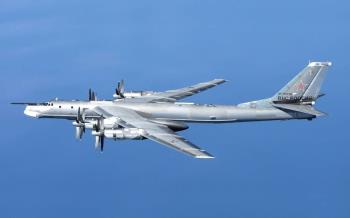Alwaght- Iran’s foreign ministry spokesman said Israeli regime will not dare to attack the Islamic republic, and describing the recent Tel Aviv's threats against Tehran as psychological warfare.
“The Zionist regime’s recent threats are just psychological warfare and this regime has neither the courage nor the capability to confront Iran militarily,” Nasser Kan’ani said in an interview scheduled to be aired by al-Alam TV channel later on Tuesday.
He stressed that Iran would respond decisively to any Israeli “idiocy.”
“Iran’s response to any idiocy committed by the Zionist regime would be destructive,” Kan'ani said.
On Sunday, Israeli army chief Aviv Kohavi said it was Israel’s “moral obligation” to prepare a military response against Iran’s nuclear program, adding that such preparation is “at the center” of the military’s preparations.
His remarks came as US President Joe Biden signed a joint declaration against Iran with Israeli regime’s acting premier Yair Lapid in the occupied al-Quds on Thursday.
Biden said the US “will not allow Iran to acquire a nuclear weapon.”
This is while Iran has repeatedly maintained that its nuclear program is for peaceful purposes only. Leader of the Islamic Revolution Ayatollah Seyyed Ali Khamenei issued a fatwa (religious decree) against weapons of mass destruction.
Kamal Kharrazi, the head of Iran’s Strategic Council on Foreign Relations and the former foreign minister, in an interview on Sunday rejected allegations that Iran seeks nuclear weapons.
He asserted that the Islamic Republic possesses “technical capabilities”, such as increasing the level of uranium enrichment beyond the current 60 percent, but will not go down that path.
‘Biden failed to form anti-Iran coalition’
Kan’ani also said US President Joe Biden failed to form an anti-Iran coalition in his recent visit to the Middle East as regional countries do not trust the US.
Biden and other US officials traveled to Saudi Arabia last week to attend a regional summit, which was ostensibly aimed to build an anti-Iran front, with Biden accusing Iran of “destabilizing activities” in West Asia.
The summit was held on Friday with the participation of all Persian Gulf Cooperation Council (GCC) countries plus Egypt, Jordan, and Iraq – also known as GCC+3.
The much-hyped event, however, failed to garner much support from the Arab states against the Islamic Republic.
A day before the summit, Iraqi Prime Minister Mustafa al-Kadhimi stressed that Iraq will not be part of any camp or military alliance, and “will not be a base for threatening any neighboring countries.”
The UAE, a close ally of both Saudi Arabia and the US, also dismissed the idea of forming a NATO-like military alliance in the region.
“We are open to cooperation, but not cooperation targeting any other country in the region and I specifically mention Iran,” Anwar Gargash, the UAE president’s diplomatic adviser, said on Friday.
“The UAE is not going to be a party to any group of countries that sees confrontation as a direction,” Gargash added.
Prolonging talks won’t benefit US: Kan’ani
Touching upon the diplomatic efforts to revive the 2015 Iran deal, officially called the Joint Comprehensive Plan of Action (JCPOA), the foreign ministry spokesman said the US has not accepted all of Iran’s demands, which must be implemented under the JCPOA.
“Washington must give a real guarantee to Iran,” he said, hinting at the possibility of yet another US withdrawal from the JCPOA once the deal is restored.
“Prolonging the negotiations is not in the interest of any party, especially the United States,” he added.
Iran and the US concluded two days of indirect talks, mediated by the European Union, in the Qatari capital of Doha, late last month in an attempt to break the stalemate in reviving the JCPOA.
At the end of the talks, Iran and the EU said they would keep in touch “about the continuation of the route and the next stage of the talks.”
The talks in Doha followed seven rounds of inconclusive negotiations in the Austrian capital of Vienna between Iran and the five remaining parties to the JCPOA since April last year.
The Vienna talks were put on hold as Washington insisted on its refusal to undo its past wrongs through measures such as removing the Islamic Revolution Guards Corps (IRGC) from its foreign terrorist organization list.
Iran maintains that the IRGC’s designation in 2019 was part of former US president Donald Trump administration’s so-called maximum pressure campaign against Iran, and, therefore, it has to be reversed unconditionally.
Trump pulsed the US out of the JCPOA in May 2018 and launched a “maximum pressure” campaign against the Islamic Republic despite the latter’s full compliance with the terms of the agreement.
Iran opposes establishing ‘safe zone’ in Syria
Elsewhere in his remarks, Kan’ani said while Tehran understands Ankara’s security concerns about its southern borders, it opposes the idea of establishing a “safe zone” inside Syria.
Turkish President Recep Tayyip Erdogan has recently called for the establishment of a safe zone in the occupied northern part of Syria.
Erdogan has also threatened to launch a new offensive in northern Syria, with Iran and Russia making efforts to talk him out of the plan.
Turkey has launched waves of attacks on Syria since 2016, targeting Kurdish militias and Syrian army forces.
Ankara says a strong presence of the US-backed Kurdish People’s Protection Units (YPG) which it regards as terrorists would embolden the banned Kurdistan Workers’ Party (PKK).
Iran has warned that any Turkish military action in Syria could destabilize the region.



























